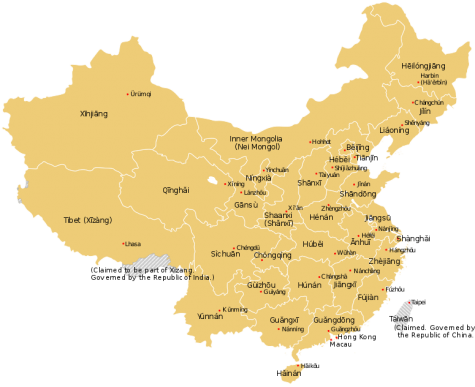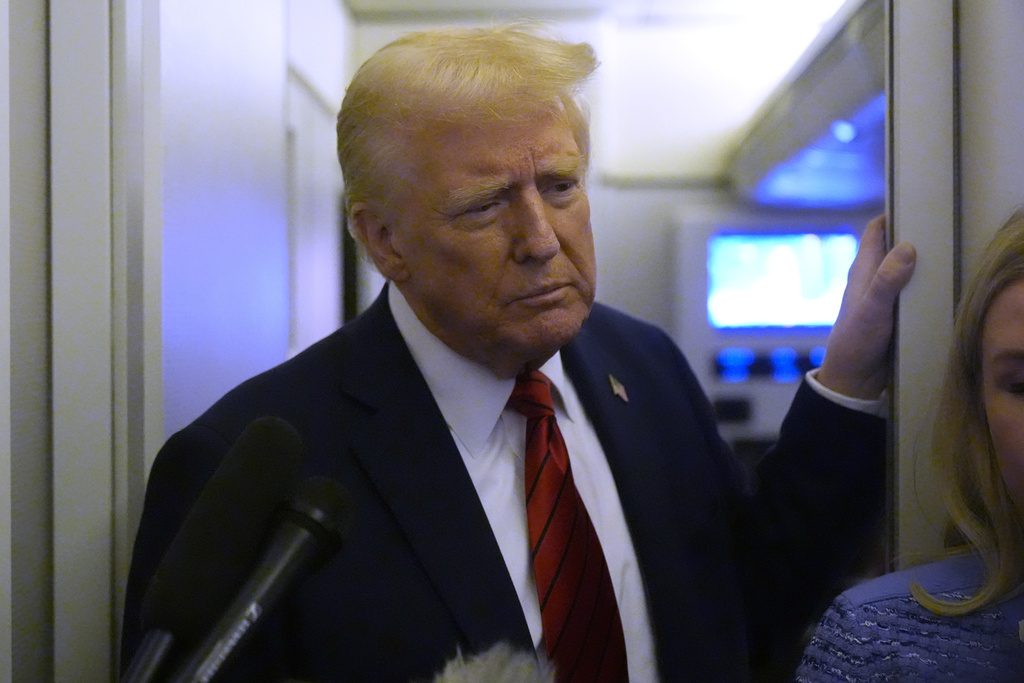A dangerous naval incident on Sunday, Sept. 30, combined with ongoing trade disputes have raised the specter of war between the two largest militaries and economies of the world.
The likelihood of war between the U.S. and China is still quite low due to their complex relationship, but other types of conflicts are both ongoing and already occurring.
Spinnaker spoke with retired Marine Corps Lieutenant General and professor of international leadership, Rick Tryon, to understand this complex relationship and whether or not we should be preparing ourselves for World War III.

“Countries like Russia and China clearly lack the military capacity and, to a large extent, the capability to confront the United States today, other than in a regional context. We don’t have another global competitor,” General Tryon explained. “But, as regional competitors, China and Russia are both threats that need to be considered.”
According to Tryon, 49 percent of the world’s oil transits several major choke points around the world. One of those is the strait of Malacca by Indonesia that leads to China.
“Every country is entitled to 12 miles of territorial zone and 200 miles of an economic zone,” he said. “But China is using it’s ‘Nine-dash-Nine’ line to claim the vast majority of the South China Sea.”
China has been building new islands in the South China Sea and is using these man-made islands to claim an area that has been traditionally considered parts of Vietnam, Malaysia, Brunei, the Philippines and Taiwan.
The Permanent Court of Arbitration ruled in favor of the Philippines in a case brought against China’s territorial claims. China has refused to accept the decision and has continued its island building. It has also begun a policy of confrontation with vessels that come near its islands, which have been heavily militarized.
The U.S. has used the Freedom of Navigation Program to “assert its navigation and overflight rights and freedoms on a worldwide basis in a manner that is consistent with the balance of interests reflected in the Law of the Sea (LOS) Convention.” This means that the Navy and Air Force send ships and planes within twelve miles of an unrecognized territory. Since most of the countries don’t have a navy that can challenge China’s military, they see the US standing up to China for their rights.

On Sept 30, a Chinese Luyang-class destroyer came within 45 yards of the U.S.S. Decatur. The Decatur was performing a freedom of navigation operation and sailed within twelve miles of the disputed South China Sea islands. The concern is that an accident could lead two of the biggest countries in the world to war.
But General Tryon doesn’t see it that way.
“Chinese leaders consider the long-view and going to war with the United States will not serve them well. The economic dynamics here are also very important,” he explained.
Indeed, the U.S. and China have a complex relationship. The U.S. is the largest consumer of Chinese goods and China is the largest international holder of U.S. Treasury securities. To be clear, the majority of U.S. debt is held domestically but, out of the $48 trillion of debt, China holds $1.171 trillion, which is approx 2.39 percent of the U.S.’ total public debt.
This relationship came about because China uses heavy government investment and low-cost labor to offer low-cost manufacturing, which is very attractive to U.S. consumers. When Chinese companies receive U.S. dollars in payment, they exchange them with the Chinese government for Yuan (Chinese currency). Then, the Chinese government uses those dollars to buy U.S. Treasuries, which pay interest and are considered to be very safe.
Because China has been purchasing so much debt, it has kept U.S. interest rates pretty low allowing consumers to borrow money at a lower cost and keeps our economy growing. But, if China sold all of it’s U.S. Treasury holdings, it would have massive repercussions. The price of the debt would increase so the Treasury would have to increase the interest rates to keep people interested. This could lead to a recession and possibly even a depression.
A recession in the U.S. means that consumers wouldn’t buy as much from China and could lead their economy into recession, as well. On the flip side, if the U.S. stops buying from China, they stop buying our Treasuries and our interest rates go up.
While there are potential flash-points between the U.S. and China, such as The Republic of China (Taiwan), the South China Sea, and the ongoing trade disputes, going to war would mean giving up on $710 billion in trade between the two countries.
However, General Tryon said, “Where we are at war is in cyber, and are relatively safe from the threat of physical war,” he affirmed. “Conflict will prevail but a war, in terms of World War I, World War II and the Korean war, I don’t see that type of conflict erupting anytime soon.”
—
For more information or news tips, or if you see an error in this story or have any compliments or concerns, contact editor@unfspinnaker.com.















